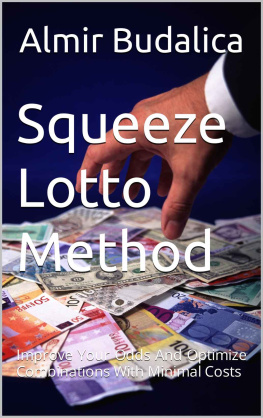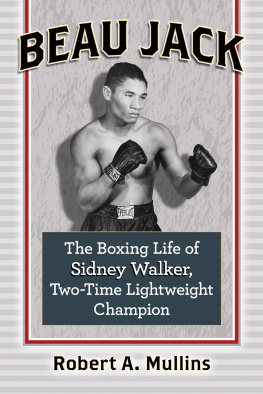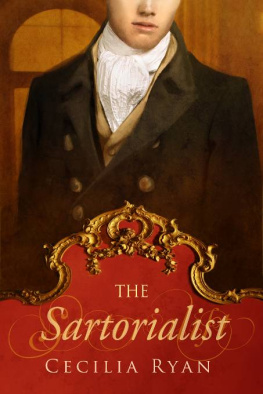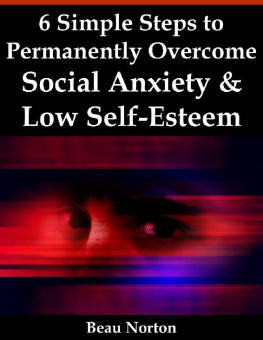Beau Lotto - Deviate: The Creative Power Of Transforming Your Perception
Here you can read online Beau Lotto - Deviate: The Creative Power Of Transforming Your Perception full text of the book (entire story) in english for free. Download pdf and epub, get meaning, cover and reviews about this ebook. year: 2018, publisher: Orion, genre: Religion. Description of the work, (preface) as well as reviews are available. Best literature library LitArk.com created for fans of good reading and offers a wide selection of genres:
Romance novel
Science fiction
Adventure
Detective
Science
History
Home and family
Prose
Art
Politics
Computer
Non-fiction
Religion
Business
Children
Humor
Choose a favorite category and find really read worthwhile books. Enjoy immersion in the world of imagination, feel the emotions of the characters or learn something new for yourself, make an fascinating discovery.

- Book:Deviate: The Creative Power Of Transforming Your Perception
- Author:
- Publisher:Orion
- Genre:
- Year:2018
- Rating:3 / 5
- Favourites:Add to favourites
- Your mark:
- 60
- 1
- 2
- 3
- 4
- 5
Deviate: The Creative Power Of Transforming Your Perception: summary, description and annotation
We offer to read an annotation, description, summary or preface (depends on what the author of the book "Deviate: The Creative Power Of Transforming Your Perception" wrote himself). If you haven't found the necessary information about the book — write in the comments, we will try to find it.
Beau Lotto: author's other books
Who wrote Deviate: The Creative Power Of Transforming Your Perception? Find out the surname, the name of the author of the book and a list of all author's works by series.
Deviate: The Creative Power Of Transforming Your Perception — read online for free the complete book (whole text) full work
Below is the text of the book, divided by pages. System saving the place of the last page read, allows you to conveniently read the book "Deviate: The Creative Power Of Transforming Your Perception" online for free, without having to search again every time where you left off. Put a bookmark, and you can go to the page where you finished reading at any time.
Font size:
Interval:
Bookmark:

To perceive freely
Through tempest
Violence un-cast
With courageous doubt
A tilted self
Dedicated to those who walk tilted.
All knowing begins with a question. And a question begins with a quest (to state the obvious), as does life. At the core of living, then, is the courage to move, to step with doubt but step nonetheless (sometimes off a cliff, which is a less good step). Fortunately, no one steps alone (except that last one). My shuffles expressed here were and are enabled by the courage of others who in different ways enable me to live: My deviant Mum and Padre and Janet, my four mad sisters, my gorgeous gremlins Zanna, Misha and Theo, and my essential and beautiful (co-)explorer and creator Isabel. All incredibly colorful people who have shown me new ways of seeing, sometimes against my will (sorry), always to my benefit eventually. They are my why, my foundation for attempting to see freely, and the motivation to support others in their attempt to do so.
I thank my teachers (and all teachers more generally). Most of our life happens without us there, since most of our perceptions were seeded by, if not out-right inherited from, others. Of particular importance to me have been the perceptions of one of the worlds leading neuroscientists Dale Purves, who was the initiator and distiller of my way of thinking and being in science and the science of perception. A mentor in the truest sense. Dale, along with Richard Gregory, Marian Diamond, Joseph Campbell, Houston Smith and Carl Sagan and their deviating-ilk reveal in action that true science (and creatively-critical-thinking in general) is a way of being that can transform. They are teachers who show us how to look (not what to look at). Teachers like Mrs Stuber at Interlake, Mrs Kinigle-Wiggle and Marshmellow, Mr Groom and Orlando at Cherry Crest, thank you. I also thank my core collaborators (teachers of a different kind): Isabel Behncke, who has expanded, opened and grounded my knowledge personally and academically in essential ways (including the different grounds of Chile the kelp-beds to lake-beds), Rich Clarke, who has been core to the labs activities and ideas since its inception, Lars Chittka, who taught me how to train bees, Dave Strudwick, who was essential to creating the labs science education programme and my diversity of PhD and Masters students in neuroscience, computer science, design, architecture, theatre, installation art, and music, such as David Maulkin, Daniel Hulme, Udi Schlessinger and Ilias Berstrom, who became experts in areas that I was not, and in doing so complexified the lab and my thinking in essential ways.
I also thank my highly engaged editors Mauro, Bea and Paul, my brilliant agent and friend Doug Abrams (whose ambition and impact in publishing is inspiring), and my tremendous support-writer Aaron Shulman without whom this 20-year project would never have been seen by me, much less anyone else. Together we struggled to innovate; i.e., to balance creativity and efficiency (or more accurately, they struggled to balance me patiently).
And I thank you. One of the most challenging things we can do is to step into uncertainty. I conceived of Deviate as an experiment in book-form, a place to share my necessarily limited understanding of perception as well as my speculations and opinions (inherited and seeded) in the hopeand I can only hopethat you would know less at the end than you think you know now, and in doing so understand more. In nature form (or change) comes from failure, not success. The brainlike lifedoes not search to live, but to not die. Which makes success an accident of what failure leaves behind when one is thoughtfully deluded enough to walk tilted (long) enough.
The only true voyage of discovery
[would be] to possess other eyes, to behold the universe through the eyes of another.
Marcel Proust
When you open your eyes, do you see the world as it really is? Do we see reality?
Humans have been asking themselves this question for thousands of years. From the shadows on the wall of Platos cave in The Republic to Morpheus offering Neo the red pill or the blue bill in The Matrix, the notion that what we see might not be what is truly there has troubled and tantalized us. In the eighteenth century, the philosopher Immanuel Kant argued that we can never have access to the Ding an sich, the unfiltered thing-in-itself of objective reality. Great minds of history have taken up this perplexing question again and again. They all had theories, but now neuroscience has an answer.
The answer is that we dont see reality.
The world exists. Its just that we dont see it. We do not experience the world as it is because our brain didnt evolve to do so. Its a paradox of sorts: Your brain gives you the impression that your perceptions are objectively real, yet the sensory processes that make perception possible actually separate you from ever accessing that reality directly. Our five senses are like a keyboard to a computerthey provide the means for information from the world to get in, but they have very little to do with what is then experienced in perception. They are in essence just mechanical media, and so play only a limited role in what we perceive. In fact, in terms of the sheer number of neural connections, just 10 percent of the information our brains use to see comes from our eyes. The rest comes from other parts of our brains, and this other 90 percent is in large part what this book is about. Perception derives not just from our five senses but from our brains seemingly infinitely sophisticated network that makes sense of all the incoming information. Using perceptual neurosciencebut not only neurosciencewe will see why we dont perceive reality, then explore why this can lead to creativity and innovation at work, in love, at home, or at play. Ive written the book to be what it describes: a manifestation of the process of seeing differently.
But first, why does any of this really matter to you? Why might you need to deviate from the way you currently perceive? After all, it feels like we see reality accurately at least most of the time. Clearly our brains model of perception has served our species well, allowing us to successfully navigate the world and its ever-shifting complexity, from our days as hunter-gatherers on the savannah to our current existence paying bills on our smartphones. Were able to find food and shelter, hold down a job, and build meaningful relationships. We have built cities, launched astronauts into space, and created the Internet. We must be doing something right, so who cares that we dont see reality?
Perception matters because it underpins everything we think, know, and believeour hopes and dreams, the clothes we wear, the professions we choose, the thoughts we have, and the people whom we trust and dont trust. Perception is the taste of an apple, the smell of the ocean, the enchantment of spring, the glorious noise of the city, the feeling of love, and even conversations about the impossibility of love. Our sense of self, our most essential way of understanding existence, begins and ends with perception. The death that we all fear is less the death of the body and more the death of perception, as many of us would be quite happy to know that after bodily death our ability to engage in perception of the world around us continued. This is because perception is what allows us to experience life itself indeed to see it as alive. Yet most of us dont know how or why perceptions work, or how or why our brain evolved to perceive the way it does. This is why the implications of the way the human brain evolved to perceive are both profound
Font size:
Interval:
Bookmark:
Similar books «Deviate: The Creative Power Of Transforming Your Perception»
Look at similar books to Deviate: The Creative Power Of Transforming Your Perception. We have selected literature similar in name and meaning in the hope of providing readers with more options to find new, interesting, not yet read works.
Discussion, reviews of the book Deviate: The Creative Power Of Transforming Your Perception and just readers' own opinions. Leave your comments, write what you think about the work, its meaning or the main characters. Specify what exactly you liked and what you didn't like, and why you think so.









